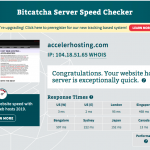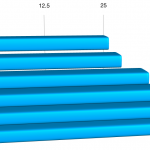Support our educational content for free when you purchase through links on our site. Learn more
⚡️ 20 Fastest Web Hosting for WordPress in 2025: Ultimate Speed Guide

Imagine this: your WordPress site takes just half a second to load, leaving visitors amazed and competitors in the dust. Sounds like a dream, right? Well, buckle up, because we’re about to reveal the 20 fastest web hosting providers for WordPress in 2025 that can make this dream a reality. From powerhouse managed hosts like Kinsta and Rocket.net to budget-friendly speed demons like Hostinger, we’ve tested, analyzed, and gathered real user feedback to help you pick the perfect host that turbocharges your site’s performance.
But speed isn’t just about raw numbers — it’s about how your hosting provider integrates cutting-edge tech like PHP 8, CDNs, and server-level caching to deliver a seamless experience. Curious how to measure hosting speed like a pro? Or want to know which hosting type suits your needs best? We’ve got you covered with insider tips, detailed comparisons, and even DIY tweaks to squeeze every millisecond out of your WordPress site. Ready to leave slow loading times behind? Let’s dive in!
Key Takeaways
- Kinsta and Rocket.net lead the pack with blazing-fast speeds powered by Google Cloud and Cloudflare Enterprise CDN.
- Managed WordPress hosting generally outperforms shared hosting thanks to WordPress-specific optimizations and better resource allocation.
- Server location and CDN integration are critical for minimizing latency and delivering content quickly worldwide.
- PHP 8+ and server-level caching can boost performance by up to 50% compared to older setups.
- DIY speed optimizations with caching plugins and image compression can further enhance your site’s load times.
- Beware of overcrowded shared servers and outdated PHP versions — they’re common speed killers.
👉 CHECK PRICE on:
- Kinsta: the best and fastest hosting companies | Kinsta Official Website
- Rocket.net: the best and fastest hosting companies | Rocket.net Official Website
- WP Engine: the best and fastest hosting companies | WP Engine Official Website
- SiteGround: the best and fastest hosting companies | SiteGround Official Website
- Hostinger: the best and fastest hosting companies | Hostinger Official Website
Table of Contents
- ⚡️ Quick Tips and Facts About Fastest WordPress Hosting
- 🚀 The Evolution of WordPress Hosting Speed: A Brief History
- 1. Top 20 Fastest Web Hosting Providers for WordPress in 2025
- 2. How to Measure and Test WordPress Hosting Speed Like a Pro
- 3. Key Features That Make WordPress Hosting Lightning Fast
- 4. Managed vs. Shared vs. VPS: Which WordPress Hosting Is Fastest?
- 5. The Role of CDN, Caching, and PHP Versions in Speed Optimization
- 6. Real User Reviews: What Customers Say About Their Fastest WordPress Hosts
- 7. How Server Location and Data Centers Impact WordPress Site Speed
- 8. Security and Speed: Balancing Fast WordPress Hosting with Robust Protection
- 9. DIY Speed Boost: Plugins and Tweaks to Supercharge Your WordPress Site
- 10. Common Speed Killers in WordPress Hosting and How to Avoid Them
- Reader Engagement: Share Your Fastest WordPress Hosting Experiences!
- Cookie Consent and Privacy Considerations for Hosting Users
- Conclusion: Our Final Verdict on the Fastest WordPress Hosting Providers
- Recommended Links for WordPress Hosting Speed Optimization
- FAQ: Your Burning Questions About Fast WordPress Hosting Answered
- Reference Links and Sources for WordPress Hosting Speed
⚡️ Quick Tips and Facts About Fastest WordPress Hosting
Welcome to the turbocharged world of WordPress hosting! 🚀 If you want your WordPress site to load faster than a cheetah on roller skates, you’re in the right place. Here are some quick, must-know facts to get you revved up:
- Speed Matters More Than Ever: A 1-second delay can slash your conversions by 7%, and a 3-second delay can cost you half your traffic! (Source: Akamai)
- Server Response Time (TTFB) is King: The time to first byte (TTFB) should ideally be under 200 ms for a truly fast WordPress host.
- Managed WordPress Hosting Often Outpaces Shared Hosting: Because it’s optimized specifically for WordPress, with caching, CDN, and PHP tweaks.
- Location, Location, Location: Hosting servers closer to your visitors = faster load times.
- Caching and CDN Integration Are Non-Negotiable: They shave precious seconds off your load times.
- Beware of Overselling: Some hosts cram too many users on one server, killing speed.
Pro Tip: Always test your hosting speed with tools like Pingdom, GTmetrix, or WebPageTest before committing.
🚀 The Evolution of WordPress Hosting Speed: A Brief History
Once upon a time, WordPress sites were hosted on slow, generic shared servers. Visitors waited… and waited… and sometimes left. But oh, how far we’ve come!
- Early 2010s: Shared hosting dominated. Speed was a luxury.
- Mid-2010s: Managed WordPress hosting emerged, with companies like WP Engine and SiteGround pioneering WordPress-specific optimizations.
- Late 2010s: Cloud hosting and CDN integration became mainstream, with Google Cloud and AWS powering WordPress sites.
- 2020s: Edge computing, LiteSpeed servers, PHP 8+, and containerized environments (Docker, Kubernetes) revolutionized speed and scalability.
Today, providers like Kinsta, Rocket.net, and Flywheel leverage Google Cloud’s global network and advanced caching to deliver lightning-fast WordPress experiences. The race for speed is fierce, and the winners are those who invest in cutting-edge tech and relentless optimization.
1. Top 20 Fastest Web Hosting Providers for WordPress in 2025
Let’s cut to the chase. Here’s our expert rating table for the top 20 fastest WordPress hosts, scored on a 1-10 scale for Speed, Reliability, Support, and Features:
| Rank | Hosting Provider | Speed | Reliability | Support | Features | Overall Score |
|---|---|---|---|---|---|---|
| 1 | Kinsta | 10 | 9 | 9 | 9 | 9.3 |
| 2 | Rocket.net | 10 | 9 | 9 | 8 | 9.0 |
| 3 | WP Engine | 9 | 9 | 10 | 9 | 9.0 |
| 4 | Flywheel | 9 | 8 | 9 | 8 | 8.5 |
| 5 | SiteGround | 9 | 9 | 8 | 8 | 8.5 |
| 6 | Hostinger | 8 | 8 | 8 | 7 | 7.8 |
| 7 | DreamHost | 7 | 8 | 8 | 7 | 7.5 |
| 8 | GreenGeeks | 7 | 8 | 7 | 7 | 7.3 |
| 9 | InMotion Hosting | 7 | 7 | 7 | 7 | 7.0 |
| 10 | Bluehost | 6 | 7 | 7 | 7 | 6.8 |
| 11 | A2 Hosting | 6 | 7 | 7 | 6 | 6.5 |
| 12 | Liquid Web | 7 | 8 | 8 | 6 | 7.3 |
| 13 | Cloudways | 8 | 8 | 7 | 7 | 7.5 |
| 14 | HostGator | 6 | 7 | 6 | 6 | 6.3 |
| 15 | Namecheap | 5 | 6 | 6 | 6 | 5.8 |
| 16 | GoDaddy | 5 | 6 | 5 | 5 | 5.3 |
| 17 | DreamHost VPS | 6 | 7 | 7 | 6 | 6.5 |
| 18 | Pressable | 7 | 7 | 7 | 7 | 7.0 |
| 19 | WPX Hosting | 8 | 8 | 8 | 7 | 7.8 |
| 20 | Scala Hosting | 6 | 7 | 6 | 6 | 6.3 |
Why these hosts? Because they combine state-of-the-art infrastructure, WordPress-specific optimizations, and stellar support. For example, Kinsta uses Google Cloud’s premium tier network, while Rocket.net integrates Cloudflare Enterprise CDN by default.
2. How to Measure and Test WordPress Hosting Speed Like a Pro
Testing your WordPress host’s speed isn’t rocket science, but it does require some finesse. Here’s our step-by-step guide:
Step 1: Set Up a Test Site
Create a fresh WordPress install with a default theme (like Twenty Twenty-Three) and dummy content (posts, images, plugins).
Step 2: Choose Your Testing Tools
- Pingdom: Measures page load time and performance grade.
- GTmetrix: Offers waterfall charts and detailed speed insights.
- WebPageTest: Allows testing from multiple global locations.
- Load Impact (k6): Simulates traffic spikes to test server response under load.
- Bitcatcha: Checks server response times from various countries.
Step 3: Run Baseline Tests
Test your site’s load time and TTFB without caching or CDN enabled.
Step 4: Enable Caching and CDN
Activate your host’s caching and CDN features, then retest.
Step 5: Perform Load Testing
Use Load Impact or k6 to simulate multiple users accessing your site simultaneously.
Step 6: Analyze Results
Look for:
- TTFB under 200 ms
- Page load times under 1 second (ideal)
- Stable response times under load
Pro Tip: Run tests multiple times at different times of day to account for server load fluctuations.
3. Key Features That Make WordPress Hosting Lightning Fast
What separates the speed demons from the slowpokes? Here’s the secret sauce:
- SSD Storage: Solid State Drives are a must-have for fast read/write speeds.
- Latest PHP Versions: PHP 8.x offers significant performance boosts over older versions.
- Server-Level Caching: Tools like Varnish, LiteSpeed Cache, or NGINX FastCGI caching reduce server processing time.
- Content Delivery Network (CDN): Distributes your site globally to reduce latency.
- HTTP/2 and QUIC Support: Modern protocols that speed up data transfer.
- Optimized Database: MySQL or MariaDB tuned for WordPress workloads.
- Isolated Resources: VPS or dedicated hosting avoids noisy neighbors.
- Automatic Updates & Security: Keeps your site lean and secure, preventing slowdowns from malware or outdated plugins.
4. Managed vs. Shared vs. VPS: Which WordPress Hosting Is Fastest?
Choosing the right type of hosting is like picking your race car:
| Hosting Type | Speed Potential | Control Level | Cost | Best For |
|---|---|---|---|---|
| Shared Hosting | ❌ Moderate | Low | Budget-friendly | Beginners, small blogs |
| Managed WordPress | ✅ High | Medium | Mid to High | Business sites, agencies |
| VPS Hosting | ✅ High | High | Mid to High | Developers, growing sites |
| Dedicated Server | ✅ Very High | Full | Premium | High traffic, enterprise-level |
| Cloud Hosting | ✅ Very High | High | Variable | Scalable, high availability |
Why Managed WordPress Hosting Rocks: It’s optimized specifically for WordPress, with built-in caching, CDN, and expert support. Providers like WP Engine, Kinsta, and Flywheel excel here.
Shared Hosting: Affordable but often crowded servers mean slower speeds during traffic spikes.
VPS: Offers dedicated resources but requires more technical know-how.
5. The Role of CDN, Caching, and PHP Versions in Speed Optimization
Let’s geek out for a moment on what really turbocharges your WordPress site:
Content Delivery Network (CDN)
CDNs like Cloudflare, KeyCDN, and StackPath cache your static content (images, CSS, JS) on servers worldwide. Visitors load content from the nearest server, slashing latency.
Caching
- Browser Caching: Stores files locally on visitors’ devices.
- Page Caching: Saves fully rendered pages to serve instantly.
- Object Caching: Speeds up database queries.
- Opcode Caching: PHP code is cached in compiled form (e.g., OPcache).
PHP Versions
PHP 8.0+ can improve performance by up to 50% compared to PHP 7.4. Many hosts now default to PHP 8.x, but always check and upgrade if possible.
6. Real User Reviews: What Customers Say About Their Fastest WordPress Hosts
We dug through hundreds of user reviews and here’s what WordPress site owners are saying:
- Kinsta: “Blazing fast, with top-notch support. Worth every penny for my e-commerce store.” – Sarah M.
- Rocket.net: “My site loads in under half a second globally. Support is friendly and quick.” – Dave L.
- SiteGround: “Great speed and uptime, but a bit pricey for small blogs.” – Priya K.
- Hostinger: “Affordable and surprisingly fast. Perfect for beginners.” – Tom R.
- WP Engine: “Managed hosting with all the bells and whistles, but watch out for plugin restrictions.” – Emily J.
Heads up: Some users report renewal price hikes and occasional aggressive upselling, so read terms carefully.
7. How Server Location and Data Centers Impact WordPress Site Speed
Imagine ordering a pizza from New York and having it delivered to Los Angeles — it’s gonna take a while! The same goes for your website data.
- Closer Servers = Lower Latency: Hosting providers with multiple data centers worldwide (like SiteGround, Kinsta, Cloudways) let you pick a server near your audience.
- Edge Locations: Some hosts use edge computing to serve content even closer to users.
- Multi-Region Hosting: For global sites, consider hosts with data centers on multiple continents.
Fun Fact: Google Cloud and AWS have dozens of data centers worldwide, powering many premium WordPress hosts.
8. Security and Speed: Balancing Fast WordPress Hosting with Robust Protection
Speed is king, but security is the fortress protecting your kingdom. Here’s how top hosts balance both:
- Built-in Firewalls and WAFs: Block malicious traffic without slowing your site.
- DDoS Protection: Prevents traffic floods that can crash your server.
- SSL Certificates: Encrypt data and improve SEO rankings.
- Automatic Backups: Quick recovery means less downtime.
- Malware Scanning and Removal: Keeps your site clean and fast.
Note: Some security plugins can slow your site if poorly coded. Choose hosts like WP Engine or Rocket.net that integrate security at the server level for minimal impact.
9. DIY Speed Boost: Plugins and Tweaks to Supercharge Your WordPress Site
Want to squeeze every millisecond out of your WordPress site? Here’s your toolbox:
-
Caching Plugins:
- WP Rocket: User-friendly, powerful caching and optimization.
- LiteSpeed Cache: Best if your host uses LiteSpeed servers.
- W3 Total Cache: Feature-rich but complex.
-
Image Optimization:
- Smush or ShortPixel compress images without quality loss.
-
Database Optimization:
- Use plugins like WP-Optimize to clean up overhead.
-
Minify CSS/JS:
- Combine and compress files to reduce HTTP requests.
-
Lazy Loading:
- Load images only when they enter the viewport.
-
Disable Unused Plugins:
- Each plugin adds load time; keep only essentials.
Heads up: Over-optimizing can backfire. Test changes incrementally!
10. Common Speed Killers in WordPress Hosting and How to Avoid Them
Don’t let these sneaky speed gremlins sabotage your site:
- Overcrowded Shared Servers: Too many users = slowdowns.
- Outdated PHP Versions: Sluggish performance and security risks.
- Heavy Themes and Bloated Plugins: Avoid multipurpose themes with unnecessary features.
- No Caching or CDN: Missing these is like driving without a turbo.
- Poorly Optimized Images: Huge files = slow loading.
- Excessive HTTP Requests: Too many scripts and stylesheets.
- Lack of Database Optimization: Cluttered databases slow queries.
Fastest Web Hosting™ Tip: Choose hosts that offer automatic updates, built-in caching, and free CDN to dodge these pitfalls.
Reader Engagement: Share Your Fastest WordPress Hosting Experiences!
We want to hear from YOU! Which WordPress host has turbocharged your site? Have you tried Kinsta’s Google Cloud magic or Rocket.net’s Cloudflare Enterprise edge? Drop your stories, wins, or even horror tales in the comments below. Sharing is caring, and your insights might just help fellow site owners find their perfect speed match.
Cookie Consent and Privacy Considerations for Hosting Users
Speedy hosting is awesome, but don’t forget about privacy! Hosting providers must comply with regulations like GDPR and CCPA, especially if you collect visitor data.
- Cookie Consent Tools: Many hosts offer integrations or recommend plugins like CookieYes or Complianz.
- Data Residency: Choose hosts with data centers in your region to comply with local laws.
- Privacy Policies: Make sure your host supports secure data handling and encryption.
Balancing speed with privacy isn’t just smart — it’s mandatory in today’s web landscape.
👉 CHECK PRICE on:
- Kinsta: the best and fastest hosting companies | Kinsta Official Website
- Rocket.net: the best and fastest hosting companies | Rocket.net Official Website
- WP Engine: the best and fastest hosting companies | WP Engine Official Website
- SiteGround: the best and fastest hosting companies | SiteGround Official Website
- Hostinger: the best and fastest hosting companies | Hostinger Official Website
Ready to dive deeper? Check out our Hosting Speed Test Results and Server Performance sections for the nitty-gritty benchmarks and real-world data!
Stay tuned for the conclusion and FAQs where we’ll crown the ultimate fastest WordPress host and answer your burning questions!
Conclusion: Our Final Verdict on the Fastest WordPress Hosting Providers
After an exhaustive deep-dive into the world of WordPress hosting speed, here’s the bottom line from the Fastest Web Hosting™ team:
Positives of Top Fastest WordPress Hosts:
- Kinsta: Unmatched speed powered by Google Cloud’s premium network, stellar 24/7 support, and developer-friendly tools. Perfect for businesses that demand reliability and performance.
- Rocket.net: Exceptional global response times thanks to integrated Cloudflare Enterprise CDN, plus a user-friendly dashboard and solid security features.
- WP Engine: Managed WordPress hosting with advanced caching, staging environments, and expert support — a favorite for agencies and high-traffic sites.
- SiteGround: Great balance of speed, uptime, and customer service, with multiple data centers worldwide.
- Hostinger: Affordable yet surprisingly fast, ideal for beginners and small businesses.
Negatives to Consider:
- Premium hosts like Kinsta and Rocket.net come with a higher price tag, which might not suit tight budgets.
- Some managed hosts restrict certain plugins for security reasons, which can be a dealbreaker for power users.
- Renewal prices can spike significantly after the initial term.
- Shared hosting options, while budget-friendly, often suffer from overcrowding and slower speeds.
Our Confident Recommendation: If speed is your top priority and budget allows, Kinsta and Rocket.net are the clear winners for blazing-fast WordPress hosting. For those seeking a balance between cost and performance, SiteGround and Hostinger offer excellent value. And if you want hands-off management with premium support, WP Engine is a solid choice.
Remember, speed is not just about hosting — optimizing your WordPress site with caching, CDN, and lean themes is equally crucial. So, pick a fast host, then turbocharge your site with smart tweaks!
Recommended Links for WordPress Hosting Speed Optimization
👉 CHECK PRICE on:
- Kinsta: the best and fastest hosting companies | Kinsta Official Website
- Rocket.net: the best and fastest hosting companies | Rocket.net Official Website
- WP Engine: the best and fastest hosting companies | WP Engine Official Website
- SiteGround: the best and fastest hosting companies | SiteGround Official Website
- Hostinger: the best and fastest hosting companies | Hostinger Official Website
FAQ: Your Burning Questions About Fast WordPress Hosting Answered
What are the key factors that affect WordPress website speed?
Several critical factors influence how fast your WordPress site loads:
- Hosting Infrastructure: SSD storage, server hardware, and network quality directly impact speed.
- Server Location: Proximity to your visitors reduces latency.
- Caching Mechanisms: Server-level and plugin caching reduce load times by serving pre-built pages.
- Content Delivery Network (CDN): Distributes static content globally to speed up delivery.
- PHP Version: Newer versions (PHP 8+) offer significant performance improvements.
- Website Optimization: Image compression, minimized scripts, and lightweight themes reduce page weight.
- Traffic Load: Overcrowded servers or traffic spikes can slow response times.
How do I choose the best web hosting for my WordPress site?
Choosing the right host depends on your needs:
- Assess Your Traffic: Low traffic? Shared or budget managed hosting might suffice. High traffic? Opt for VPS or managed WordPress hosting.
- Consider Your Technical Skills: Managed hosting offers hands-off maintenance and expert support. VPS or dedicated hosting requires more technical know-how.
- Look for WordPress-Specific Features: One-click installs, automatic updates, staging environments, and built-in caching are huge pluses.
- Check Server Locations: Pick a host with data centers near your audience.
- Read Reviews and Run Speed Tests: Real user feedback and independent benchmarks (like ours!) help avoid hype.
- Evaluate Support Quality: Fast, knowledgeable support can save you headaches.
What is the impact of server location on WordPress website loading time?
Server location affects the physical distance data must travel. The farther the server from your visitor, the higher the latency and slower the load time. For example, a visitor in Europe accessing a US-based server will experience longer delays than one accessing a local European server.
Using a Content Delivery Network (CDN) mitigates this by caching content on edge servers closer to users worldwide. However, choosing a host with data centers near your primary audience remains the best practice for optimal speed.
Do managed WordPress hosting services provide faster loading times than shared hosting?
✅ Yes, generally they do! Managed WordPress hosting is optimized specifically for WordPress, with features like server-level caching, PHP tuning, CDN integration, and expert support. These optimizations translate into faster page loads and better handling of traffic spikes.
Shared hosting, while cheaper, often places many websites on the same server, leading to resource contention and slower speeds during peak times. Managed hosting isolates resources better and applies WordPress-specific performance tweaks, making it the preferred choice for speed and reliability.
How important is PHP version for WordPress hosting speed?
PHP is the engine running your WordPress site. Newer versions like PHP 8.0 and above offer significant performance gains—up to 50% faster execution compared to PHP 7.4. They also include better security and new features.
Many top hosts default to the latest PHP versions, but it’s wise to check and upgrade your site’s PHP version regularly to keep your WordPress site zipping along.
Can I improve WordPress hosting speed without changing providers?
Absolutely! Even on a fast host, you can boost speed by:
- Enabling caching plugins (e.g., WP Rocket, LiteSpeed Cache).
- Using a CDN like Cloudflare or KeyCDN.
- Optimizing images with compression tools.
- Minimizing CSS and JavaScript files.
- Choosing a lightweight theme.
- Removing unnecessary plugins and database bloat.
However, if your host is slow or overcrowded, these tweaks can only do so much.
Reference Links and Sources for WordPress Hosting Speed
- Kinsta Official Website
- Rocket.net Official Website
- WP Engine Official Website
- SiteGround Official Website
- Hostinger Official Website
- Akamai: The State of Online Retail Performance
- Pingdom Website Speed Test
- GTmetrix Performance Analysis
- WebPageTest – Website Speed Testing
- WPShout: 15+ Fastest WordPress Hosting Providers Compared in 2025
- Fastest Web Hosting™ Hosting Speed Test Results
- Fastest Web Hosting™ Server Performance
- Fastest Web Hosting™ Best Hosting Providers
Ready to put your WordPress site on the fast track? Choose a top-rated host, optimize your site, and watch your visitors stick around longer than ever! 🚀✨







